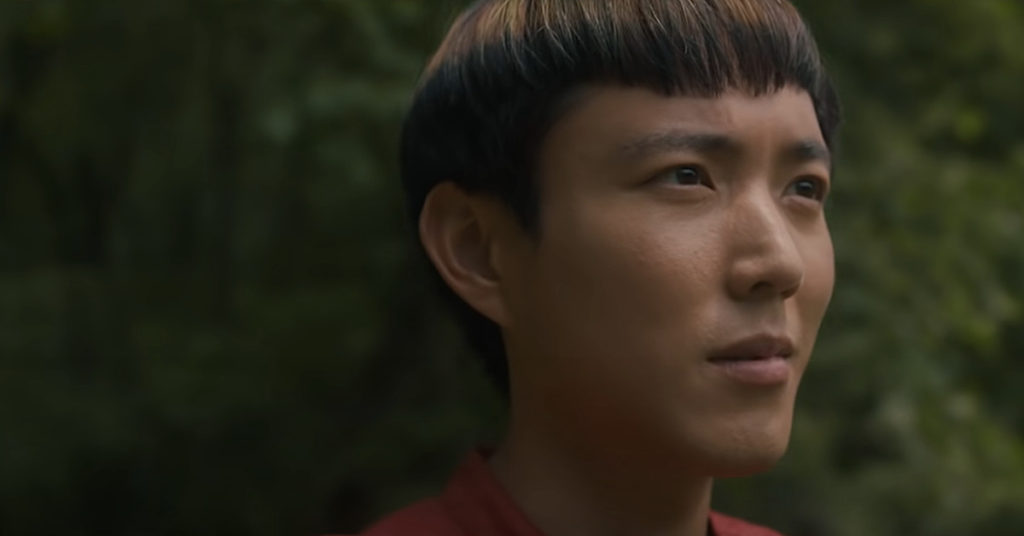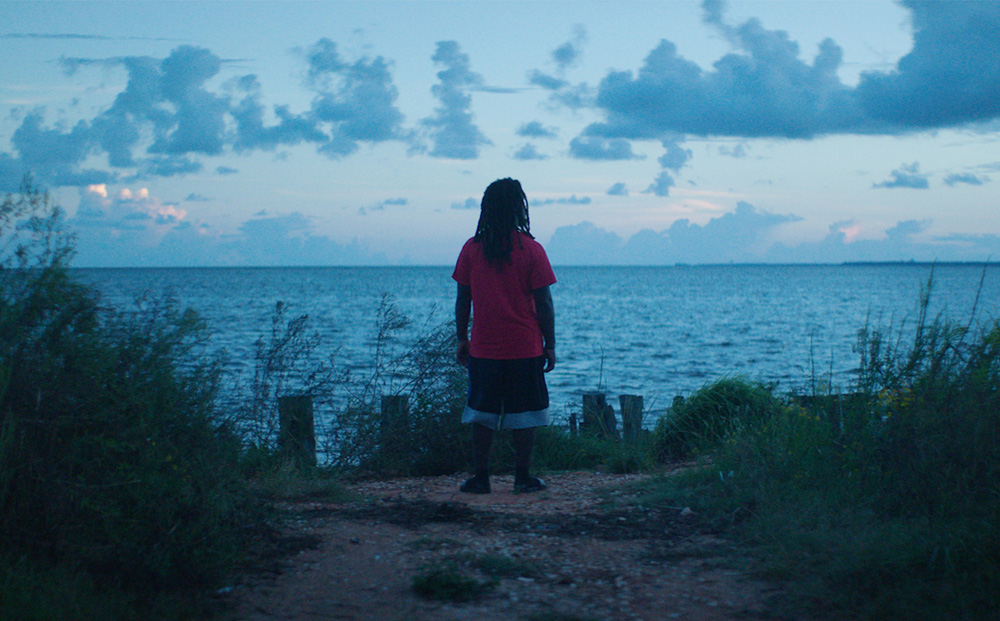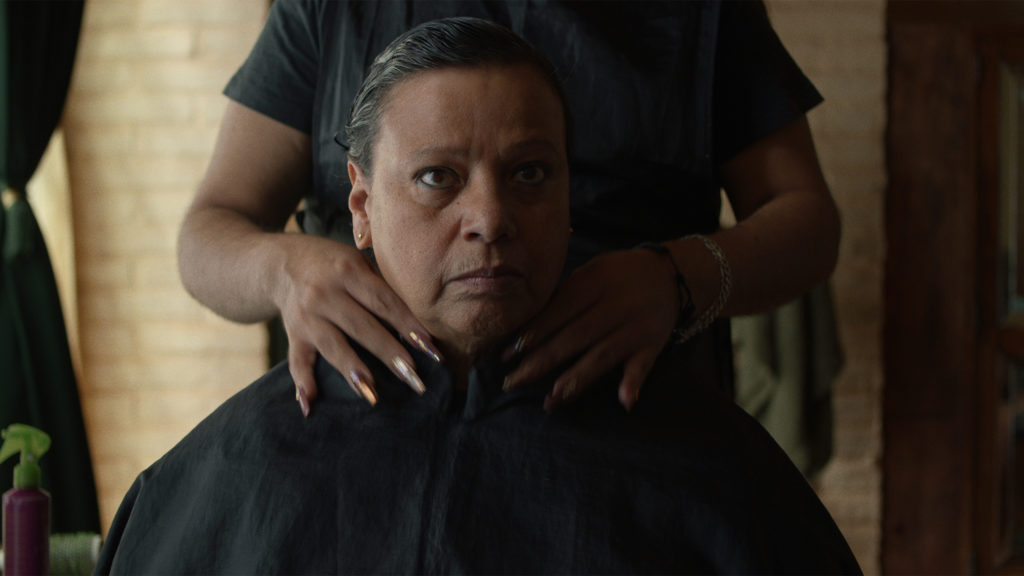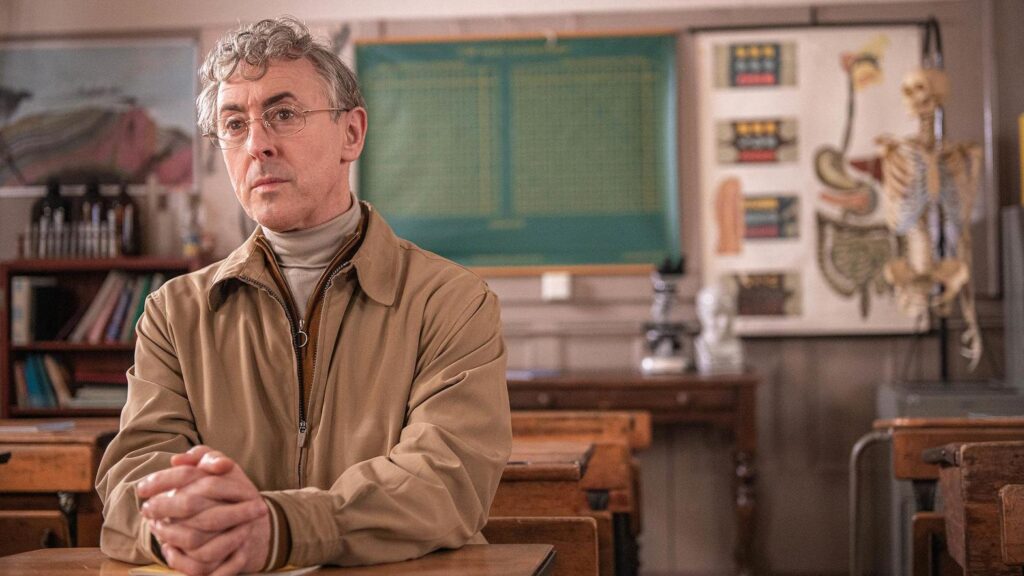AFS Lead Programmer Lars Nilsen’s Sundance 2022 Favorites

Hello everyone, Lars Nilsen here. Last month I “attended” Sundance for the eighth time, and, unfortunately, for the second year running I was on my couch when I did it. On the plus side, it meant I could experience the whole thing under climate controlled circumstances, with the convenience of my refrigerator and pantry nearby, but naturally one loses something when deprived of the true big screen experience, and there are no opportunities to meet, greet and deal. Grousing aside, here are a few of my favorites from this year’s fest. I should note that I was primarily evaluating films in my role as Cinema Programmer, so I skipped some of the buzzier but – alas – destined for streaming titles. And, as always, I watch a lot of documentaries. Here goes:

AFTER YANG:
The newest film from Kogonada (COLUMBUS) is a highly engaging, thoughtful work of speculative science fiction about a family who buy a cybernetic android assistant (the Yang of the title) to help with the raising of their daughter, and the difficulties that arise when the unit goes on the blink. Kogonada, who has an able touch with the smallest interactions, finds drama and import in the tiniest details. A satisfying and provocative work from a director who got his start making video essays about his auteur heroes and now seems poised to join them.

BRAINWASHED: SEX-CAMERA-POWER:
When Nina Menkes joined us virtually a while back for a screening of her newly restored film QUEEN OF DIAMONDS, she talked a bit about this project, a filmed version of a stage monologue and presentation she has done many times. In it she ties together the recent #metoo movement the outrages that provoked it with the tendencies of some Cinema, even Great Cinema, to objectify women through a lens of power and domination. It’s an extraordinarily lucid presentation – she uses clips from some of the masters to make her points. Notably, Menkes does not call for these films to be discarded, just to be read and understood more closely as symptomatic of the culture that gave rise to them.

DESCENDANT:
Filmmaker Margaret Brown has been well known to many of us here in Austin from as far back as her Townes Van Zandt doc BE HERE TO LOVE ME in 2004 and she’s been very busy since, making some of the best documentaries out there. She has always been especially interested in the Gulf Coast, particularly her hometown of Mobile, Alabama. In her new doc, DESCENDANT she has found particularly rich subject matter – the search for the last slave ship, the Clotilda, which was sunk by its owners after its final, illegal voyage. As Faulkner said, the past is never dead, it’s not even past. And this proves to be true as the residents of the Africatown section of Mobile, many of them descendants of those same enslaved people, spearhead the search for the sunken vessel. Most fascinating is the struggle to define past history, seen here in microcosm as the entire city – in which the former slaveowner families still wield enormous and political power – and the descendants face off over telling the truth to future generations.

DOS ESTACIONES:
Like Margaret Brown, Juan Pablo González is a filmmaker who has been supported in his endeavors in the past by AFS Grants. In this, his latest film, he moves from documentaries to a drama so full of authentic detail that it could almost pass as non-fiction. It is the story of a family-owned tequila distillery in Jalisco overseen by a very hands-on chief, Señora María, played with powerful restraint by Teresa Sánchez. For much of the running time we watch the ins and outs of tequila distillation – a fascinating and photogenic process – even as we are made aware of certain existential challenges facing the business. At the same time, a younger woman with more modern ideas (Rafaela Fuentes) enters the picture, and I’ll just shut up, because you need to see this film. Some movies are digested entirely by the time the end credits roll. This is not one of them. The images and characters tend to stick with you long afterwards. A good thing.

FREE CHOL SOO LEE:
Eugene Yi and Julie Ha’s documentary depicts an injustice and its fascinating aftermath. In 1973 a gangland murder occurred in San Francisco’s Chinatown. A group of white tourists identified the killer as 20-year old Korean immigrant Chol Soo Lee, and he was convicted for the crime but after serious procedural questions were raised, he was granted a new trial. A couple of details make this story so compelling: first is the nature of the community coalition that arose to defend Lee – a mix of Berkeley radicals and conservative Asian-American businesspeople; second is the later life of Lee himself, formerly a hero and martyr he found himself again on the outside. In many ways this is an American tragedy. It often happens that documentaries with especially resonant characters are remade into narrative films. Though I am a bit ambivalent about this trend, this is a prime candidate for such treatment.

MY OLD SCHOOL:
It’s very difficult to write about this film without spoiling any details about the case it describes, but I’ll try. Back in the early ’90s, a new student named Brandon Lee appeared at the private high school Bearsden Academy in Glasgow. He said he was from Canada and was both more awkward and more sophisticated than his fellow students. That may be as much as I can say. Suffice to say, it’s one of those “truth is stranger than fiction” kinds of things. Though the film is a documentary – featuring clever and numerous animated re-enactments as well as interviews with the former students – Alan Cumming appears as “Lee” here, lip-synching the audio interviews provided by the real “Brandon Lee.” Very funny and mostly pretty light, this one really hit the spot after a lot of heavy stuff at the fest.









